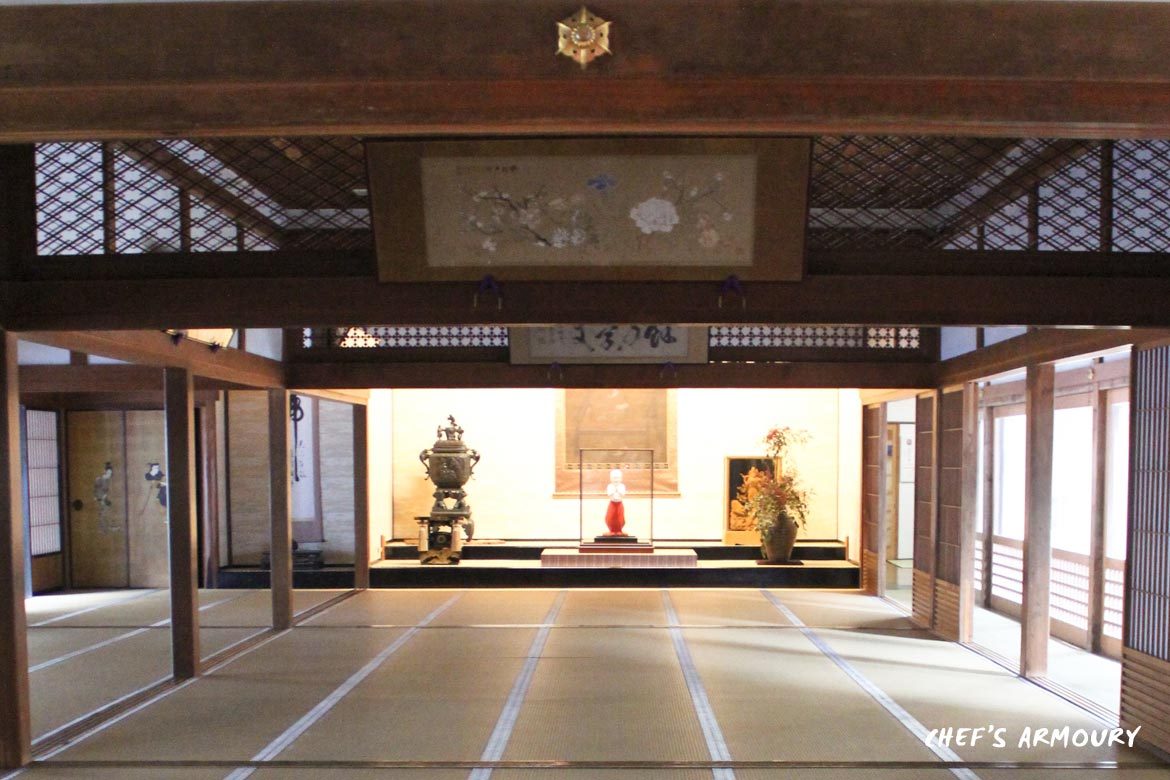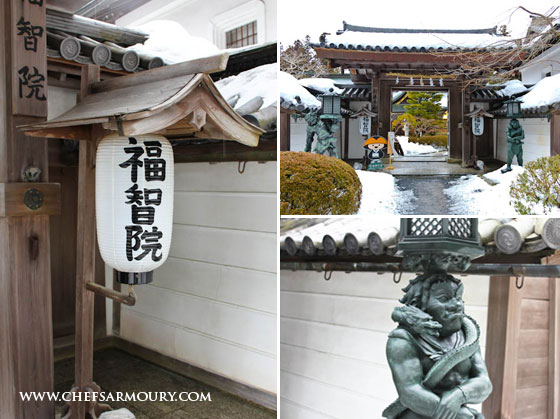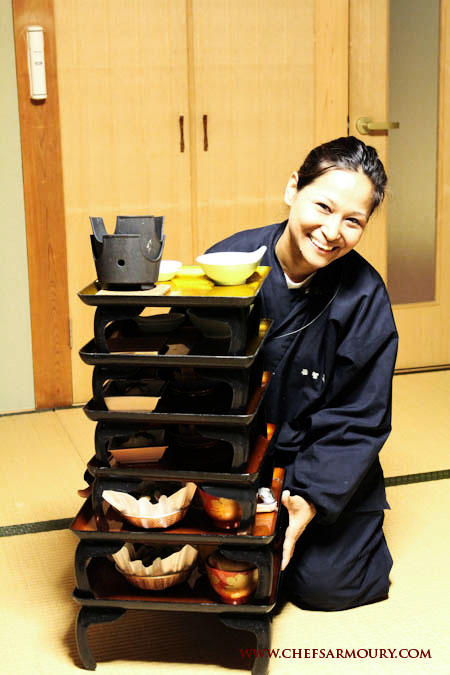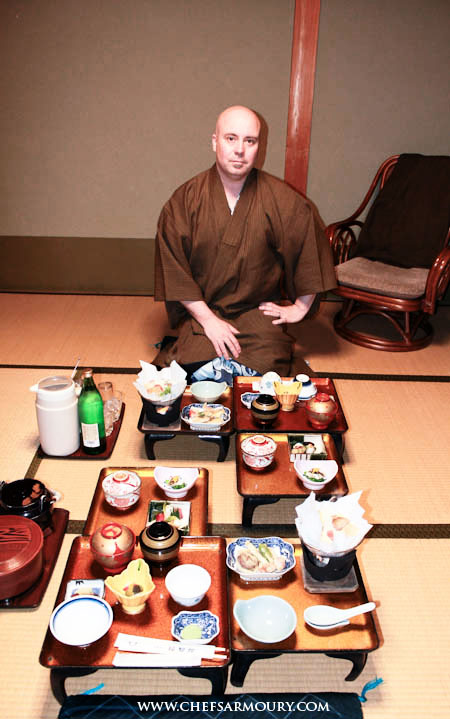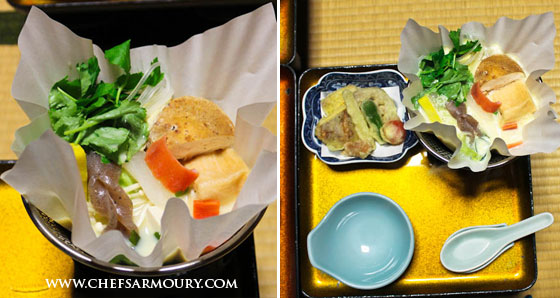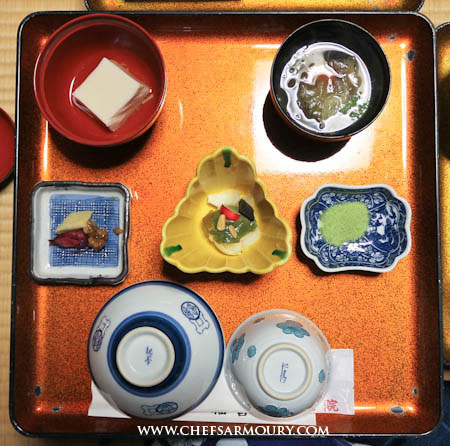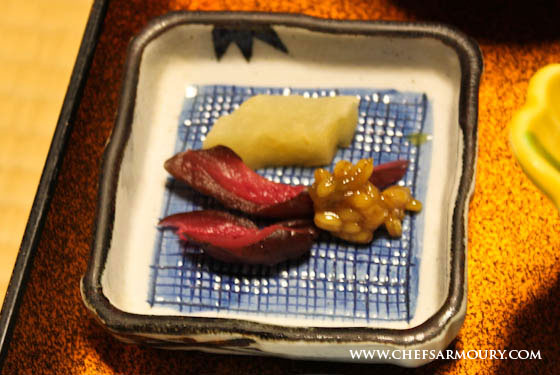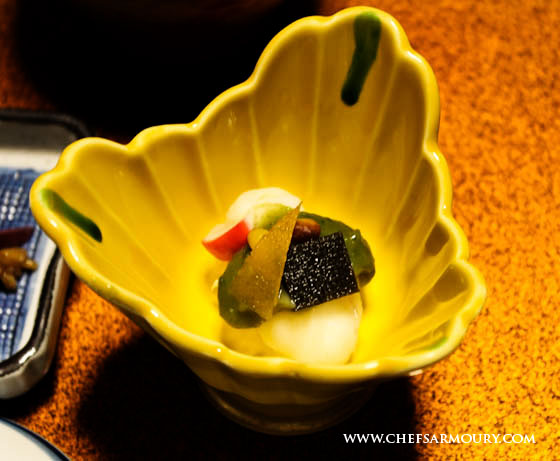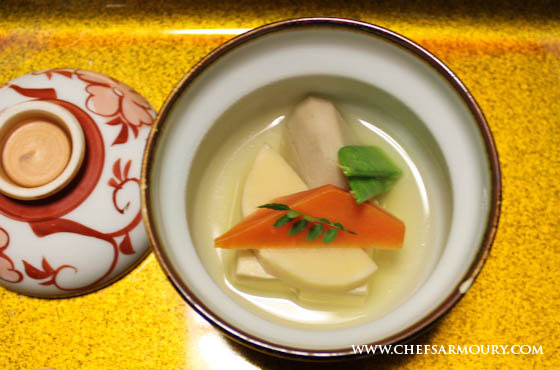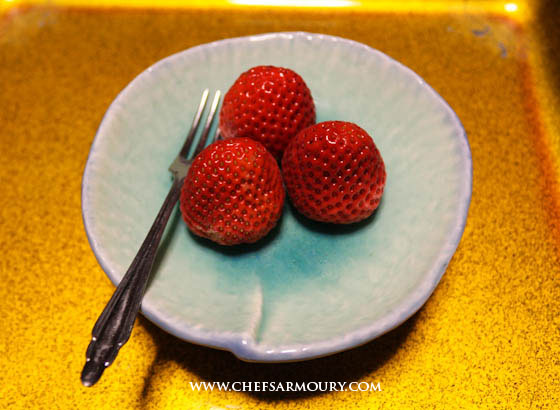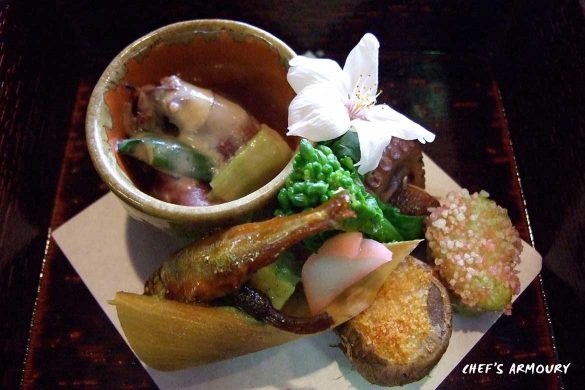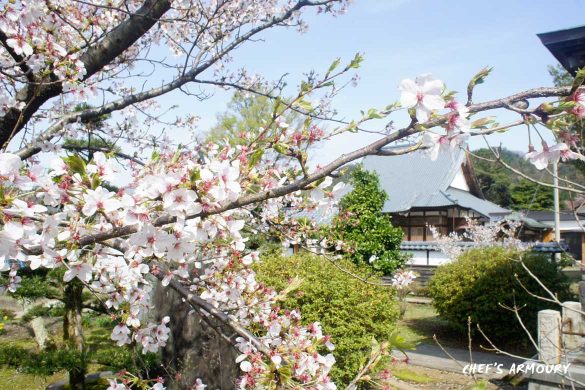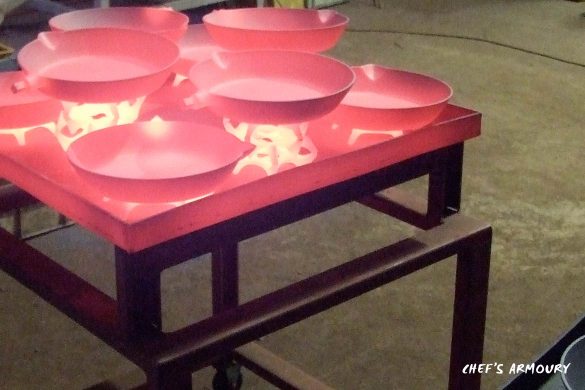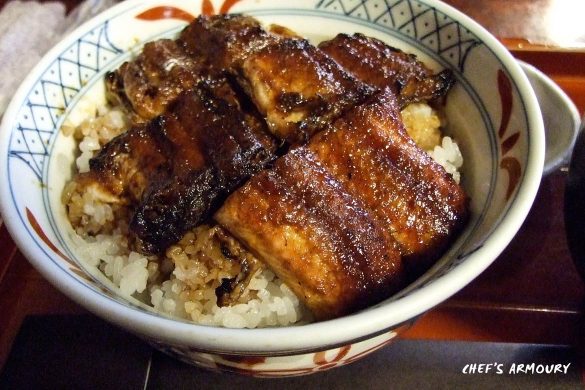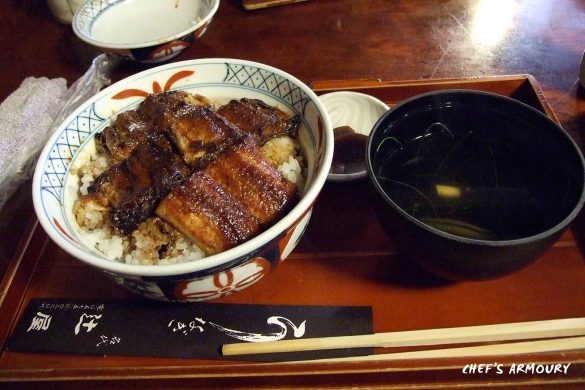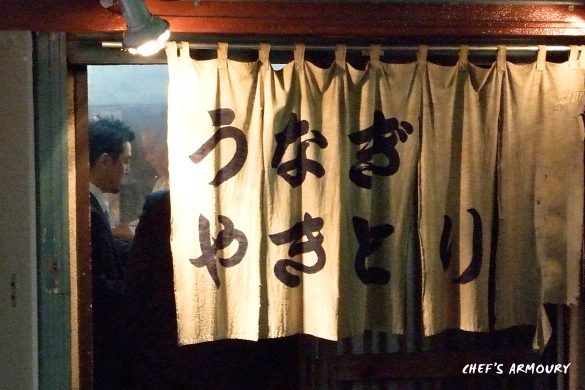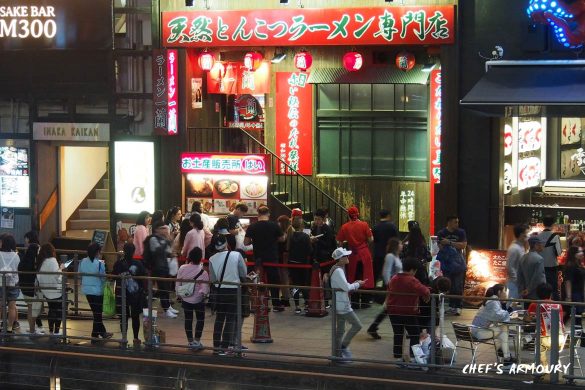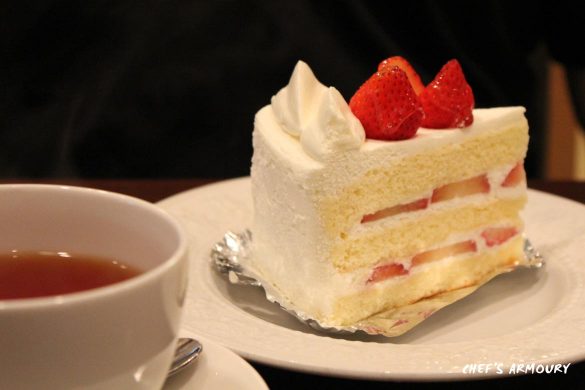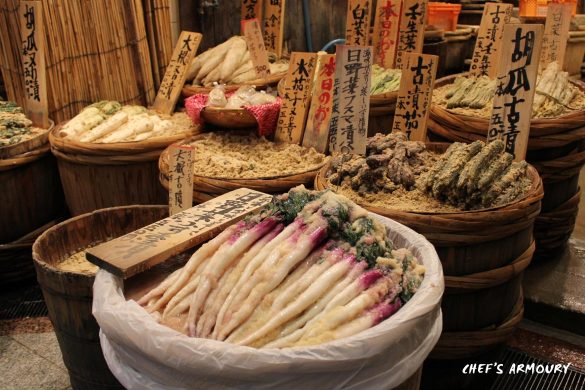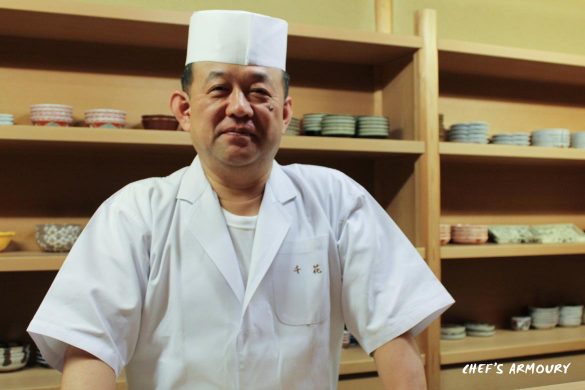As a card carrying carnivore I wouldn’t normally get excited about vegetarian food but I’ve just flown 11 hours, caught 2 trains, a cable car and a very dodgy bus, to experience Shojin Ryori cooked by the monks of Fukuchi-in temple at World Heritage listed Mount Koya.
Staying in shukubo (temple lodging) is a unique experience, especially for the westerner. We stay in a 10 mat tatami room with an all important ensuite toilet. Bathing facilities are at the other end of the monastry and incorporate an indoor and outdoor onsen. Our room is sparsely decorated with a low table, one lounge seat, a gas heater … and no bed.
At 6pm light knock at the door and the call of “Sumimasen” heralds the arrival of dinner. Half an hour in the Fukuchi-in onsen (hot spring) has limbered us up nicely so sitting on the floor is quite bearable. Dinner is served honzen ryori style on small lacquerware trays with four legs.
Three trays contain a collection of vegetables skillfully selected at the peak of their season. The bowls and serving implements are carefully selected to compliment the colours and type of foods they hold.
The first tray features soy milk nabe (hotpot) simmered with shiitake and enoki mushrooms, several incarnations of tofu and a few mouthfuls of glutinous noodles. A humble tray of tempura also presents something I have never tried – tempura of pickled ume (plum), a serious short odds favourite.
The second tray features goma dofu (white sesame hand ground so fine it has the texture of tofu), a rich suimono (consommé) that you would swear has been made from meat stock, a trio of the best pickles ever – cucumber pickled in red shiso, daikon nukazuke (white carrot pickled in rice bran) and mugi miso (barley miso).
A yellow goblet houses some locally foraged vegetables seasoned with kinome miso. Kinome are the leaves from the sansho pepper tree.
The third tray has a trio of dishes. A dish of simmered bamboo shoot, carrot, daikon, snow pea and kinome.
Next to this is a dish of daikon pickle with yuzu zest, young ginger stem, kombu no tsukudani, sweet potato and grilled mochi.
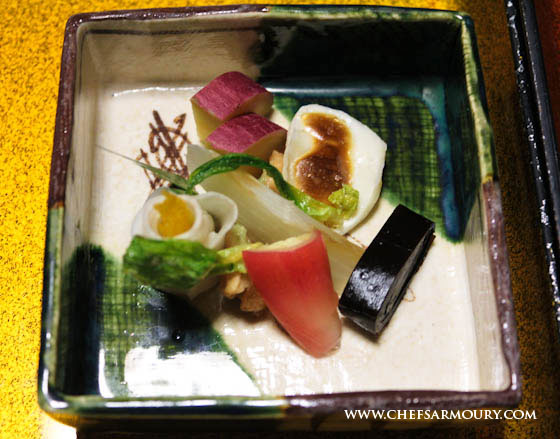
Daikon pickle with yuzu zest, young ginger stem, kombu no tsukudani , sweet potato and grilled mochi
The last dish is nanohana (green rapeseed blossom), steamed red pepper, kombu slithers topped with yuzu zest served with dried tofu.

Nanohana (green rapeseed blossom), steamed red pepper, kombu slithers topped with yuzu zest served with dried tofu
Of course all of this is served with perfectly cooked short grain Japanese rice and green tea. A small selection of alcoholic and non-alcoholic drinks were available as extras so we took a punt on a bottle of buckwheat shochu. Not the prettiest bottle but it rates with the finest we have tried proving that these monks don’t only know their food but their drink as well.
To finish our attendant brings us two dishes of three perfectly beautiful strawberries, a refreshing end to a brilliant meal.
If a picture tells a thousand words then it would take 1000 pictures to even to even begin to describe the depth of flavour and attention to detail in the food being served at this humble temple on Mount Koya.
And if you were wondering about the bed, after dinner is cleared, a futon is laid out with lots of warm bed coverings and some plump pillows. Firm but very comfortable.
……..
If you are ever in Japan a trip to Koyasan’s Fukuchi-in will reinvigorate your appreciation for Japanese vegetarian food.

